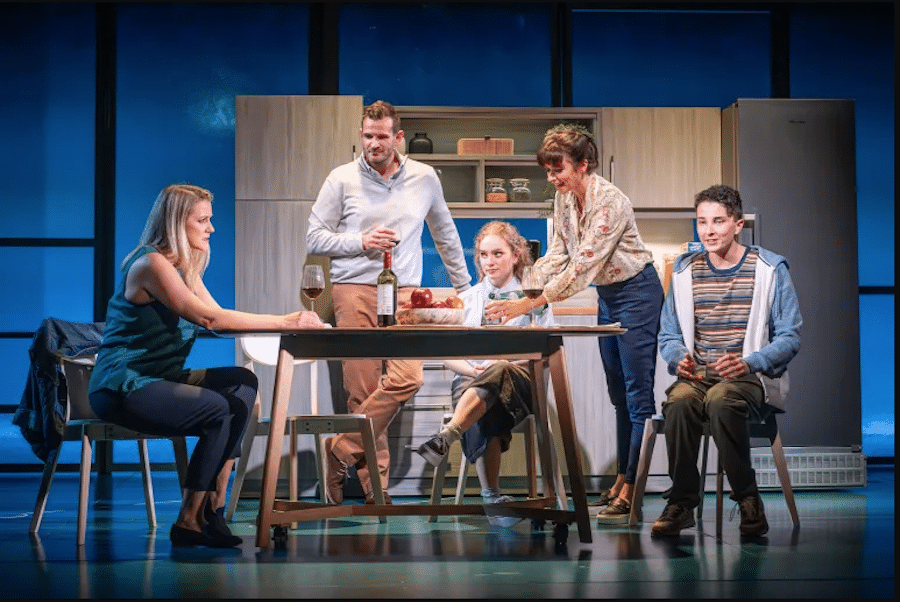Review: Fatal Attraction brings the famous erotic thriller to the stage
- Written by Craig McDonald
- Last updated 3 years ago
- Theatre
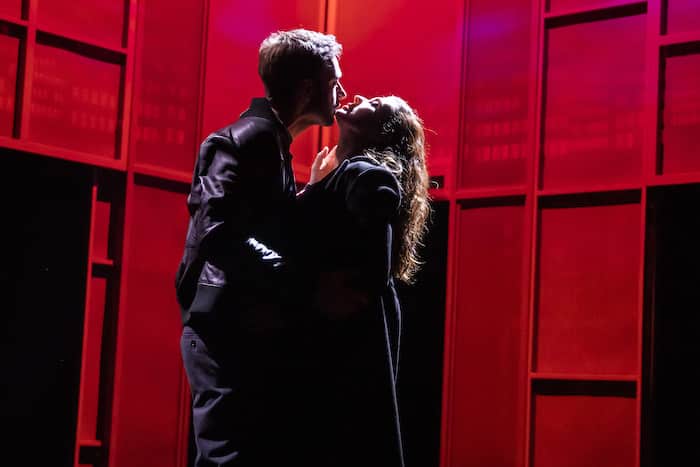
Following a run on the stage back in 2014, James Deardon has brought his 1987 big screen erotic psychological thriller Fatal Attraction back to Manchester at the Opera House.
Written by Deardon, directed by Loveday Ingram, and starring Kym Marsh as Alex, in the famous Glenn Close role, and Oliver Farnworth as the adulterous Dan, originally played by Michael Douglas, it tells the story of a tragic affair that culminates with the famous ‘bunny boiling’ scene that went on to coin the phrase in popular culture.
And while it is a tale worth revisiting in the modern era, it falls short in comparison to its source material, with a number of scenes being clearly more suited to the big screen.

The world has changed in the interim, and this new adaptation attempts to redress the balance of blame that was decidedly one sided in the motion picture, with the alternative ending that was filmed but ultimately cut by the bigwigs at paramount, being preferred.
Without wanting to give anything away, it does dramatically change things, with the male lead receiving more than just the proverbial slap on the wrists this time, and judging from some of the responses I overheard from the audience, these alterations came as something of a surprise.
Kym Marsh and Oliver Farnworth are superb in the central roles, with Kym in particular giving a powerful performance worthy of the character.
It’s not Glenn, but it’s Close enough, and with the character being cast in a far more sympathetic light this time, it gives the actor the opportunity to explore the issues of mental health that were largely glossed over, or at least more misunderstood at the time of the film’s original release.

Fantastic support is provided by Susie Amy, as Dan’s wife, Beth, and Jimmy, Dan’s best friend, played by John Macaulay is a hit with the audience, providing some occasional light-hearted relief to proceedings.
There are attempts to bring the story into the modern era, with projection designer MOGZI imaginatively incorporating FaceTime and other modern communication technologies into the performance that effectively evoke a larger space outside of the confines of the otherwise minimalist set which, mostly just switches between a bed, and the infamous stove throughout.
Where the stage show struggles is with the more salacious and shocking scenes, and the problems inherent in translating them to the stage.
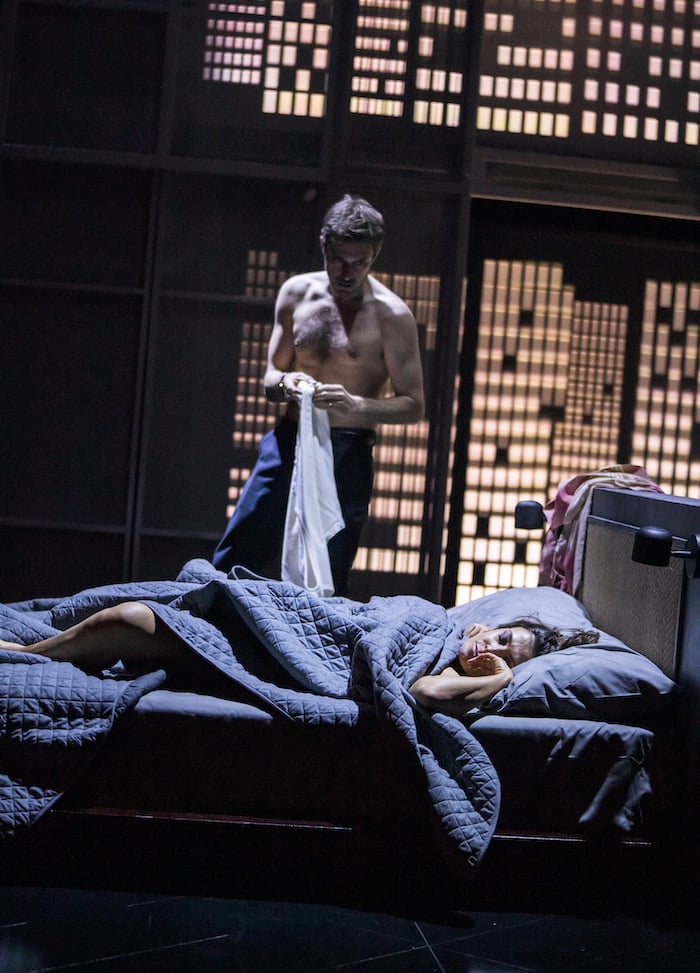
There are scenes where the audience were genuinely confused as to what was happening on stage – in particular the scene where Alex destroys Dan’s car with battery acid. Unless you knew it happened in the film, it just came across as muddled and disjointed.
Furthermore, if not for the fact that the ‘bunny’ scene was so famous and highly anticipated by the audience, it may have been unclear what was taking place.
The bunny boiling baggage that the film brings to the show is a little problematic in my eyes.
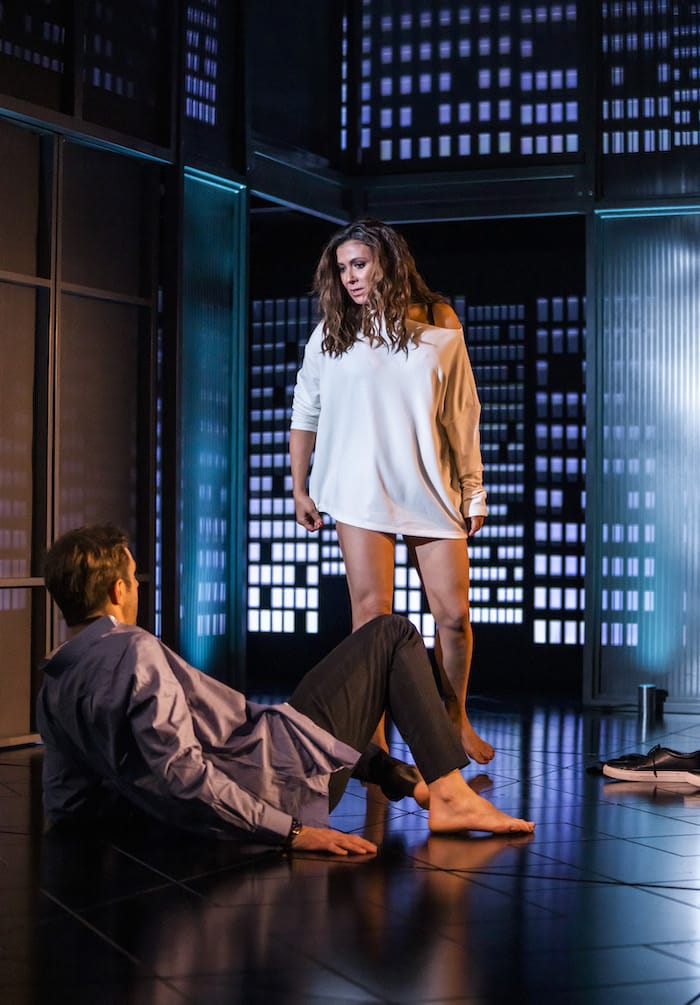
The iconic scene that coined the term in popular culture is so anticipated by the audience that every mention or sight of the accursed critter brought an immediate, expectant note of recognition from the audience.
An almost pantomime quality was applied to the rabbit every time it made an appearance, which served to cheapen the otherwise heavy and serious subject matter on display, ultimately giving the performance something of an identity crisis.
Worth it for the much improved ending, and the solid performances by its leads who do their best with the material, but ultimately a little disjointed and limited by the restrictions of the stage, versus the relative freedom of the big screen.
With tickets starting from £13, Fatal Attraction runs from 22nd to 26th February at the Manchester Opera House. Tickets are available here.
- This article was last updated 3 years ago.
- It was first published on 23 February 2022 and is subject to be updated from time to time. Please refresh or return to see the latest version.
Did we miss something? Let us know: [email protected]
Want to be the first to receive all the latest news stories, what’s on and events from the heart of Manchester? Sign up here.
Manchester is a successful city, but many people suffer. I Love Manchester helps raise awareness and funds to help improve the lives and prospects of people across Greater Manchester – and we can’t do it without your help. So please support us with what you can so we can continue to spread the love. Thank you in advance!
An email you’ll love. Subscribe to our newsletter to get the latest news stories delivered direct to your inbox.
Got a story worth sharing?
What’s the story? We are all ears when it comes to positive news and inspiring stories. You can send story ideas to [email protected]
While we can’t guarantee to publish everything, we will always consider any enquiry or idea that promotes:
- Independent new openings
- Human interest
- Not-for-profit organisations
- Community Interest Companies (CiCs) and projects
- Charities and charitable initiatives
- Affordability and offers saving people over 20%
For anything else, don’t hesitate to get in touch with us about advertorials (from £350+VAT) and advertising opportunities: [email protected]

Strictly high-flying: Kelvin Fletcher trades dance moves for dirt jumps at Arenacross

Worker Bee: Meet Peter Hook, legendary New Order and Joy Division bassist
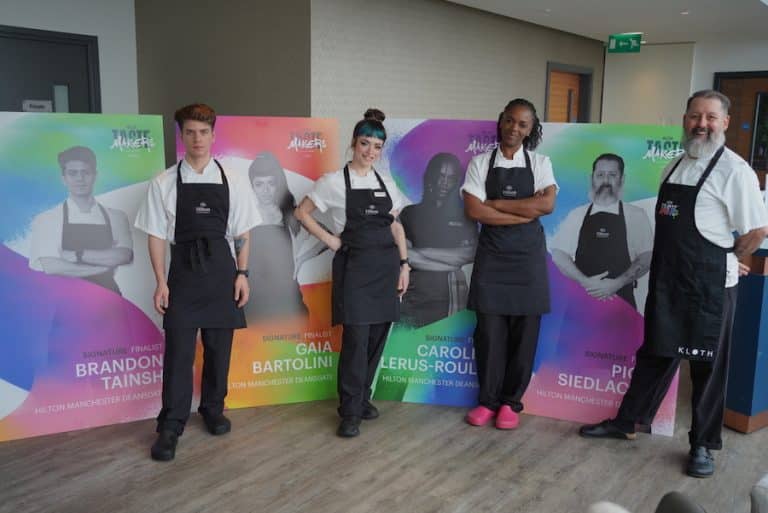
Hilton Manchester Deansgate’s superstar chefs shine on the world stage

How Sounds from the Other City became the UK’s most unforgettable independent festival

Piehard: where to get the best pies in and around Manchester







